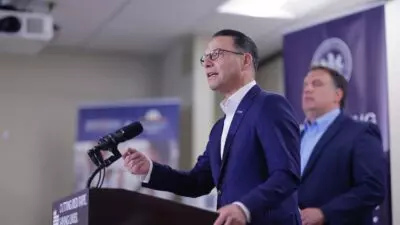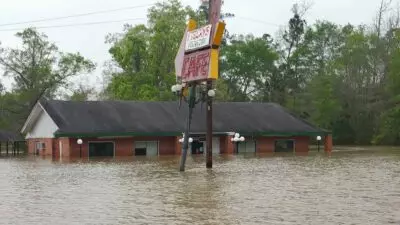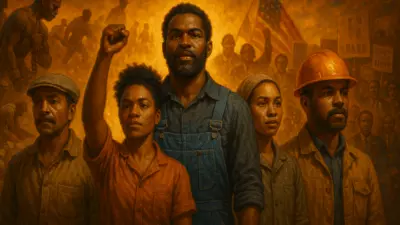Short answer: Very, but not for the reason you might assume.

Concerns for the future of our democratic republic are certainly heightened ahead of an election pitting an accomplished octogenarian, whose every stumble and slurred word makes my heart skip a beat, against a vengeful, election-denying, cult leader willing to tear down our democracy to stay out of prison.
Trump’s cockroach-like ability to survive myriad political and personal scandals illustrates how a once-in-a-generation bullshit artist could test the limits of the Constitution.
And yet, that’s not the concern that keeps me up at night.
What worries me most is that so many Americans seemingly have an extremely low opinion of American democracy — based on faulty information — and are willing to tear it down.
When asked, almost half of Americans polled last summer said that democracy wasn’t working in America anymore.
At the time of that poll, inflation was higher, likely fueling concerns about the affordability of the “American Dream.” But the fact that so many Americans were certain democracy was irrevocably broken indicates we have far larger problems in America than Trump.
What really ails America is a crisis of confidence … in ourselves.
Until recently, America as a nation on the world stage, never lacked for swagger, sometimes operating with too much confidence in ourselves and our agendas (wars in Vietnam and Iraq are examples that come quickly to mind, among others).
And at home, we’d crow about how America’s brand of democracy was the envy of the world, and particularly, al Qaeda (remember them?), who President George W. Bush repeatedly asserted had attacked the nation on Sept. 11 because the terror group envied American democracy.
That bravado about the superiority of American democracy, and our perceived need to defend it, is in part what led us down dark paths in Vietnam and Iraq (also Afghanistan).
And ironically, those costly decisions to “defend” American democracy, among others problems at home (growing white/blue collar income disparity, labor unions busting, etc.) are what caused the extreme pendulum swing away from favoring and celebrating it.
You know those trillions of dollars we spent in the last two-plus decades on ill-fated wars?
What worries me most is that so many Americans seemingly have an extremely low opinion of American democracy — based on faulty information — and are willing to tear it down.
Well, among other things, that money certainly wasn’t spent on things that would improve the lives of taxpayers, such as infrastructure and education, particularly two subjects in which Americans really need more smarts: history and civics.
As a result, we have professed, life-long Republicans singing the praises of Russian President Vladmir Putin, fellow East European autocrat Viktor Orban, and China’s Xi Jinping, all despots who just a short while ago would have been among the GOP’s greatest overseas villains. Now, they are celebrated for their “toughness,” even with their own people.
These days, many Americans actually think life is better under the rule of these authoritarians, and that Dear Leader Trump should be at the helm of a new, anti-democratic America.
Much of this newfound, anti-democratic attitude has been “taught” to them by Trump and the extremist media that celebrates his illiberal aspirations.
This isn’t a uniquely American phenomenon. Throughout the course of history, wherever there is ignorance, propaganda repeated ad nauseam fills the knowledge void by exploiting fears and resentment.
Problem is, it’s extremely difficult to convince those that have been propagandized, as anti-democratic talking points always include the vilification of higher education, or any education that isn’t a part of its agenda.
So, what you get as a result of this gaping smarts gap, in addition to a coup attempt aimed at overthrowing a free and fair election, is your most annoying uncle insisting that windmills cause cancer while killing all the birds and whales.
Because maintaining a healthy democracy means putting in the work, much of it homework, that each and every one of us needs to do every day, such as following current events and having a firm grasp of what preceded us and shaped America, for better and worse.
Only when more of us commit to doing the work to keep our democracy healthy and invest in its future can we stop worrying about whether it will survive.
Only when more of us commit to doing the work to keep our democracy healthy and invest in its future can we stop worrying about whether it will survive.







